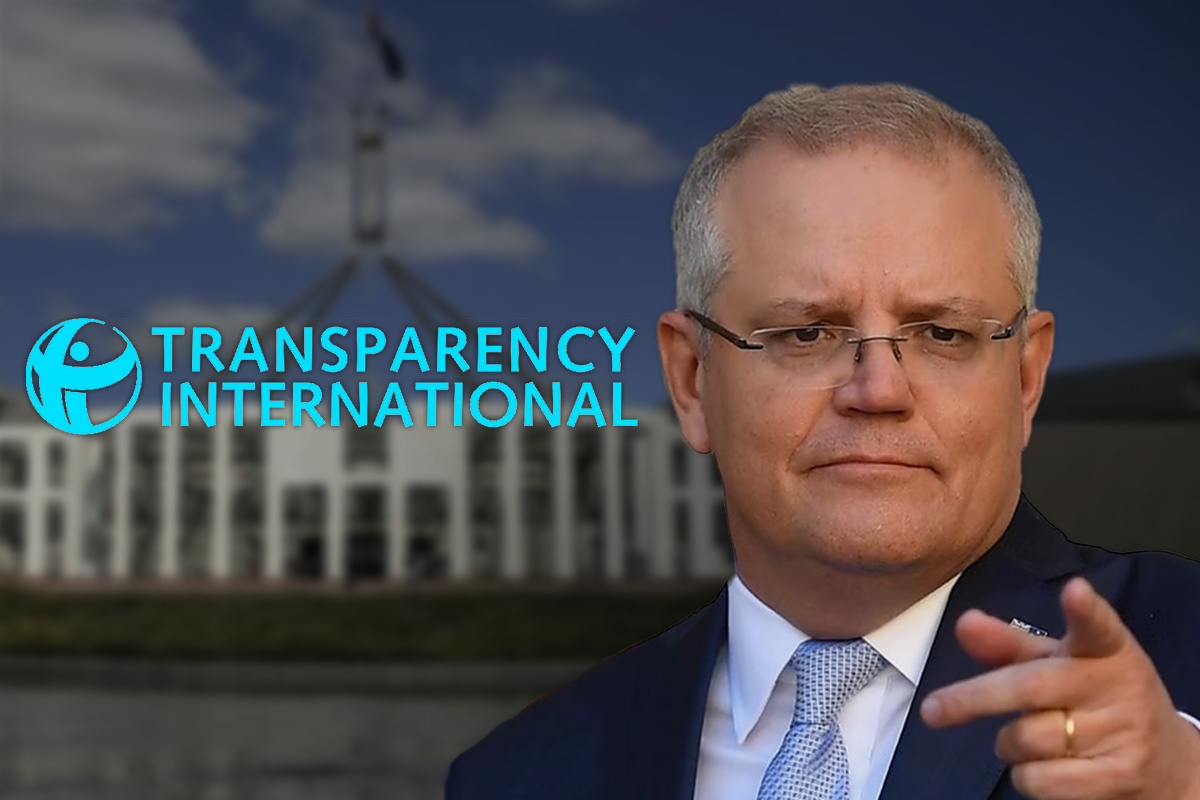Just days after Scott Morrison struck down calls for a federal anti-corruption commission as “a fringe issue”, a new report from Transparency International’s Corruption Perceptions Index has exposed that Australia’s levels of corruption have been increasing since 2012.
The report has shown that Australia, in 7th place in 2012, now sits in 18th place compared to all other countries evaluated. Australia scored 73 points on the 100-point scale. Australia is one of nine countries to worsen their score since 2012 alongside countries like Guatemala, Syria, Turkey, Yemen and Macedonia. Of the evaluated countries that saw a worsened score, only Australia, Turkey and Hungary are developed members within the OECD, Turkey and Hungary are two OECD nations who have recently been reported to demonstrate authoritarian tendencies.
Reasons for Australia’s score aren’t explained in the report, but it’s fairly easy to speculate why our country has become a breeding ground for corruption. Scandals have plagued the government since Tony Abbott came to power in 2013. Sports rorts, pork-barreling, corrupt allocation of grant funds, allowing criminals to hide money in Australia’s property market, the East Timor electronic surveillance scandal and the outcomes of inquiries by state anti-corruption commissions are all weighing down on Australia, the government being at the forefront of the increasing corruption levels.
Some of these were identified in Transparency International’s annual report last year, which reported: “Australia faces several corruption challenges, including anonymous company ownership and money laundering. Following the FinCEN files, where thousands of leaked financial documents exposed a vast paper trail of money laundering across the globe, more than US$150 million were traced back to Australian banks. The country also shows severe deficiencies when it comes to corruption in international real estate. As a result of a 2006 law, properties can be bought and sold without due diligence and real estate agents, lawyers and accountants are not required to report suspicious activities. Australia currently doesn’t require individuals behind foreign companies, or beneficial owners, to disclose their identity when purchasing property. Investigations show that real estate can open the door to money laundering and grand corruption, like in the case of Chinese police chief Wang Jun Ren, who received a 17-year prison sentence after embezzling money to buy Australian real estate. Similarly, South Sudanese General James Hoth Mai Nguoth, bought high-end real estate while his country battled civil war.”
This report from such an influential global agency is deeply concerning, giving even more reason for a federal ICAC. Despite Scott Morrison’s insistence that a federal ICAC is both unnecessary and unwanted, it is clear that Australians are worried about corruption. According to an ABC vote compass poll of over 100 thousand people, 84% believe corruption is a problem in the federal government.
Jake Martin for People’s Press

